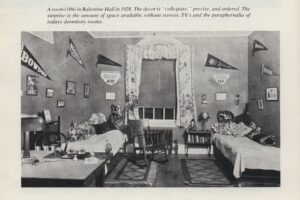Last Wednesday, Nov. 9, the University of Maine School of Policy and International Affairs (SPIA) held its fourth-annual Graduate Student Debate. The topic of the debate was “Be it resolved, the United Kingdom is better off after Brexit.”
What does “Brexit” mean? Brexit is the merging of the terms “Britain” and “exit.” The word Brexit is used as a shortened way of referring to the United Kingdom leaving the European Union. On June 23, 2016, a referendum — a vote in which almost every citizen of voting age can participate — decided whether the U.K. should leave or remain in the EU. The Leave side won 52 percent of the vote while the Stay side received 48 percent. More than 30 million British citizens voted, bringing the referendum turnout to 71.8 percent. The new Prime Minister Theresa May took over for David Cameron who resigned the day after the referendum. The U.K. is projected to leave the EU by the summer of 2019. Until then, EU law still stands in the U.K..
SPIA students Philemon Dushimire, Colby Darling, and Ian Kerr argued for Brexit while Evan Christie, Sabrina Oliver, and Ryan Skillern argued against. Each side had five minutes to make an initial presentation, three minutes for rebuttal to the opposing side’s argument, and two minutes for a summary. People in the audience were handed ballots before the debate to record their initial position on the argument. After hearing the debate, the audience voted again, to see if they changed their minds. Then the volunteers counted the difference. The team that made the audience change their mind the most was the winner.
Second-year SPIA and MBA student Jiwon Nam was the coordinator of this year’s debate. Nam was in charge of planning the debate, advertising, and recruiting the debaters. Nam participated in last year’s debate, where she argued against Japanese remilitarization.
“I personally felt against it, but it was still good to hear other side’s argument,” Nam, who is a native of South Korea, said.
SPIA professor Kenneth Hillas was the moderator of the debate. Hills picked Nam for the position of a coordinator from his Global Politics class. There are eight students in this discussion-based class.
“This class made me think as I speak,” Nam said. “Hillas encourages everyone to support your arguments; if I think a certain way, he asks why, and you have to back up your argument. He keeps asking questions until you cannot answer anymore, and sometimes you find that your argument is wrong and contradicts itself.”
There are 25 students in SPIA. The topic of the debate was up to SPIA students to decide. Besides the chosen Brexit topic, there were four other topics that did not make the cut: “Scotland would better off after Brexit”, “the Gulf States should take more refugees”, “terrorism is an effective mean to build a separate state”, and “Crimea would be better off as part of Russia”, with the last of these receiving the second most votes from SPIA students.
More than 50 people filled the Hill Auditorium of Barrows Hall to watch the debate. Among them were students, faculty, and citizens of European Union member nations as well as U.K. citizens. During the question-and-answer session, audience members had the chance to ask debaters questions about their arguments. Some people brought up the effect of Brexit on shared intelligence between U.K. and EU, as well as the generation gap’s effect on voter turnout.
Andrew Crawley, Assistant Professor of Economics questioned the “for” side’s argument that U.K. is better off after Brexit.
“What do you mean by ‘better off’? Is it the economy, or the welfare of U.K.?,” Crawley, a dual citizen of the U.K. and the Republic of Ireland, asked.
Debaters talked about Brexit’s effect on EU citizens living in the U.K., immigration, the fall of the pound value, economic impact on big businesses and more. Brexit’s impact on Scotland and Northern Ireland was also brought up at the debate. A referendum on Scottish independence took place on Sept. 18, 2014, and the Northern Ireland sovereignty referendum was held on March 8, 1973. Both referendums resulted in the two countries remaining as part of Great Britain.
After the debaters’ arguments and the question-and-answer session, audience members turned in their second ballots.
“The day after Election Day, we don’t want to have uncounted ballots,” Kenneth Hillas, debate moderator, said to the audience.
“[The] presidential election is Brexit times five,” Hillas said, causing several laughs in the audience.
The team arguing “for” persuaded the largest number of change in the opinion, therefore winning the debate.
“I didn’t agree with my assigned side, so I had to do a lot of research,” Sabrina Oliver, second year SPIA student said. “[The] opposing side presented valid arguments, I don’t think that EU members want the U.K. to leave the EU.”
Director of the SPIA Daniel Sandweiss was present at the debate.
“I came to SPIA debates before and was always impressed. These are smart students who make good arguments,” Sandweiss said.
Sandweiss believes that it could be interesting to have a debate comprised of faculty debaters. He already has a topic in mind — what will be and what should be the role of the new U.S. government?











